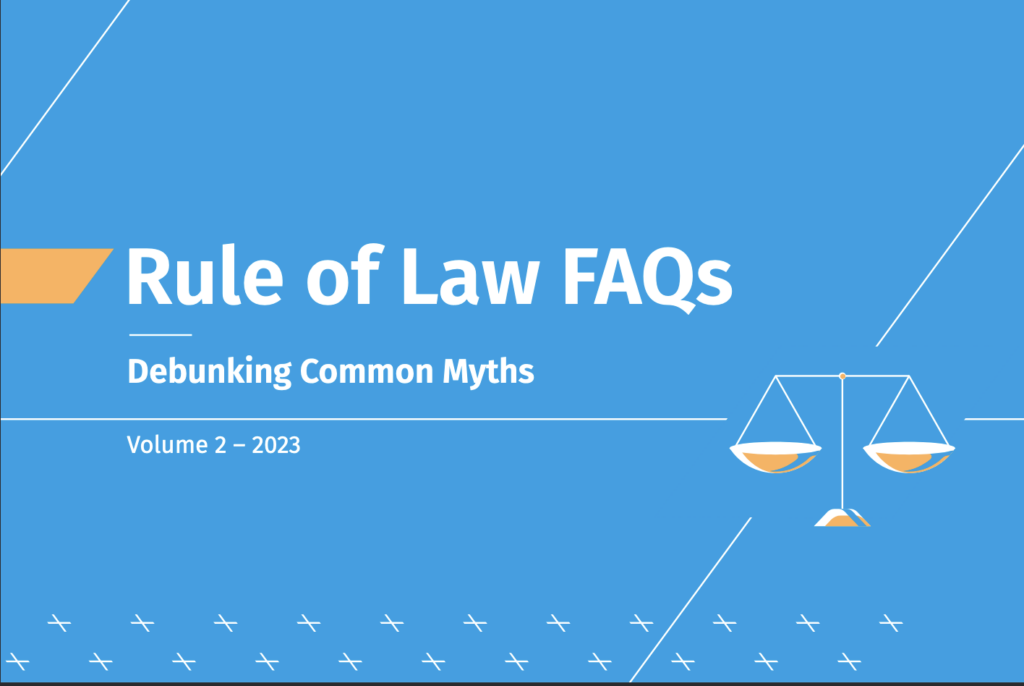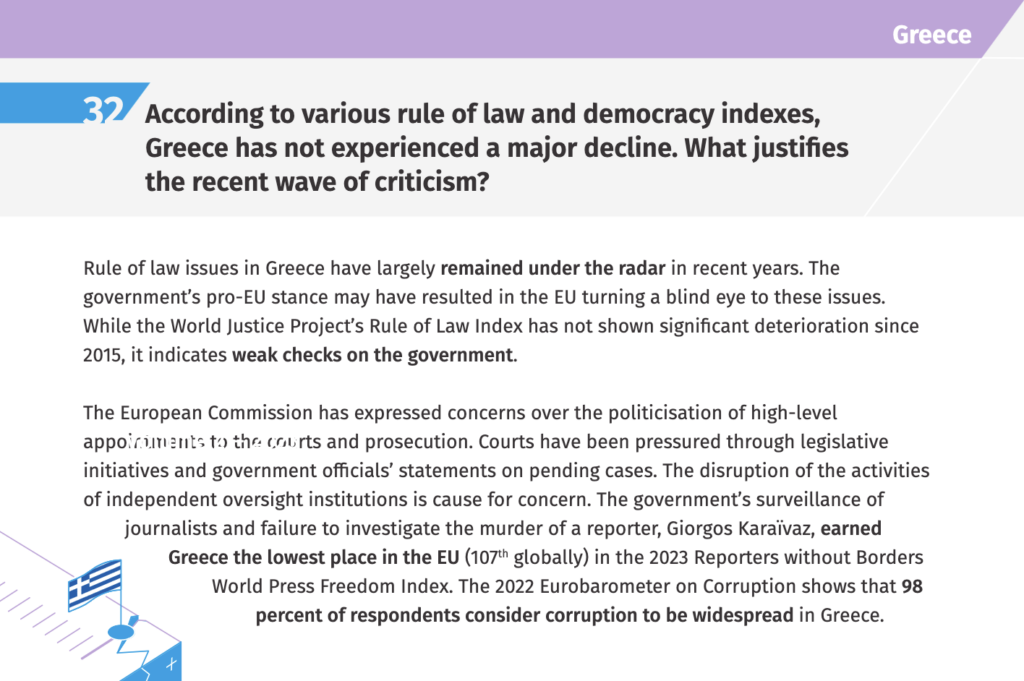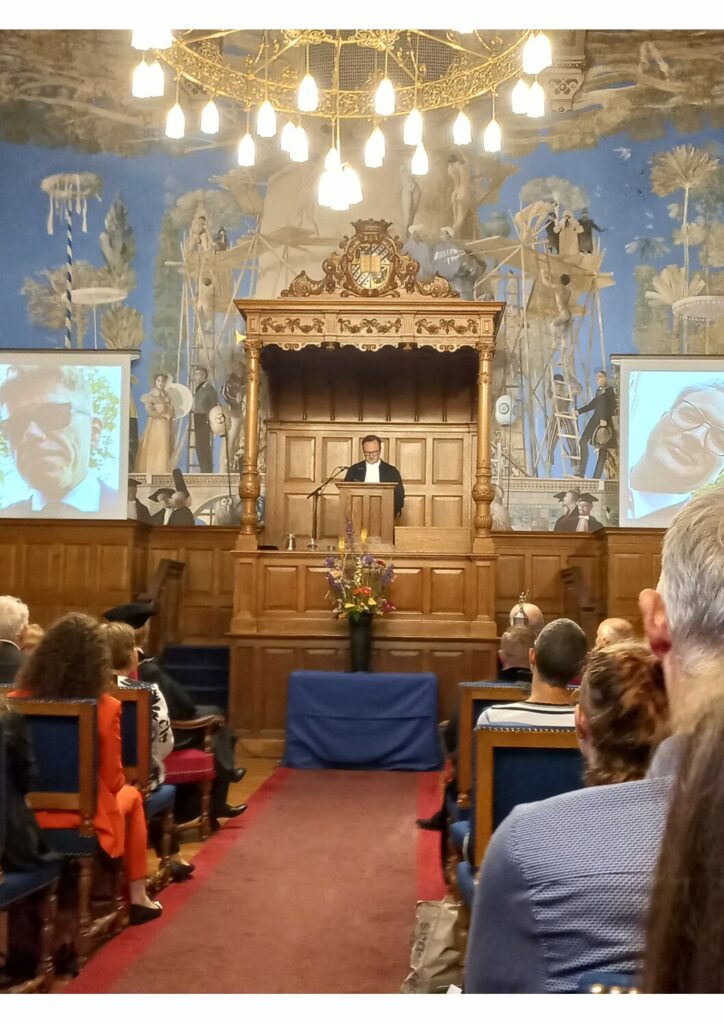News from the courts
Cases CJEU
- Requests for preliminary ruling:
C-373/22 – NE 08/06/2022 (Bulgaria)
Charges were brought against NE in proceedings before the Spetsializiran nakazatelen sad (Specialised Criminal Court; ‘the referring court’). At the preliminary hearing in this case, NE sought the disqualification of the court, since he questions the impartiality of both the judge to whom the case has been assigned and all the judges of the referring court.
C-603/22 – M.S. e.a. 26/08/22 (Poland)
In the period from 9 February to 8 March 2022, the judge speaking alone in the present case was removed from her judicial office by order of the Minister of Justice. The referring court doubts whether an executing authority such as the Minister of Justice may, at the pre-trial phase and during the judicial proceedings, intervene in the process of direct application of EU law by linking powers of supervision of the courts with the powers arising from the exercise of the office of Attorney General.
C-711/22 – Advance Pharma 26/05/22 (Poland)
On 3 February 2022, the ECtHR found a violation of Article 6(1) ECHR. The ECtHR also stated that the judicial formation involved in the case is not a “court established by law”. Subsequently, in May 2022, the applicant requested the reopening of the national procedure. The applicant claims that refusal to reopen as a result of the ECtHR judgment may lead to the deprivation of the guarantee of effective judicial protection.
C-634/22 – O.T. e.a. 28/09/22 (Bulgaria)
While the criminal proceedings against O.T. were pending in 2019, the proposal for the Bulgarian law amending and supplementing the law on the judiciary, which provides for the abolition of the Bulgarian special criminal court (SNS), was the subject of public debate. The court is of the opinion that the dissolution of the SNS, in the way it has been carried out and with the reasons put forward, is contrary to the principle of the rule of law, undermines the independence of that court and the separation of powers, and that pressure is thus exerted by the legislature and the executive. The question is, inter alia, whether EU law should be interpreted as undermining the independence of a court that is abolished by the adopted amendment to the Bulgarian law on the organization of the judiciary, whereby the courts must, however, continue to deal with cases until that time, and must also subsequently continue the handling of cases in which preliminary hearings have already taken place.
C-658/22 – Sąd Najwyższy 02/09/22 (Poland)
Given that the majority of judges of the Civil Chamber – namely judges appointed before 2018 – had expressed doubts about the regularity of the appointments of judges in the Sąd Najwyższy (Supreme Court) by the Polish President since 2018, the Sąd Najwyższy considered it justified to to ask a preliminary question about the regularity of the composition of the judicial formation. The question is, inter alia, whether a court of a Member State adjudicating at last instance, which includes persons appointed as judges in breach of that Member State’s fundamental rules of law on the appointment of judges, is an independent, impartial tribunal that pre-established by law and which ensures effective legal protection for individuals in the fields covered by Union law.
Order – 07/11/2022 – FX and Others (Effet des arrêts d’une Cour constitutionnelle III)
Case C-859/19 (Joined Cases C-859/19, C-926/19, C-929/19)
Preliminary questions about i.a. the interpretation of art 2 TEU, art 19(1) TEU and Decision 2006/928. The Court decided national law/practice is not precluded which prescribes that the decisions of the national constitutional court are binding on ordinary courts, provided the independence of that constitutional court is guaranteed by national law. Yet, precluded is national law that can trigger disciplinary liability of national judges of ordinary courts when they fail to comply with the decisions of the national constitutional court.
Opinion AG Collins 15/12/22 in GC cases C-615/20 and C-671/20 – Y.P. e.a. and M.M. ECLI:EU:C:2022:986 (Poland)
The preliminary questions concern the compatibility with EU law of certain aspects of the recent reform of the Polish judicial system, more specifically, the permission granted by the Disciplinary Chamber to prosecute and suspend a judge, thereby depriving him or her of the right to adjudicate certain criminal cases assigned to that judge. AG Collins argues that Article 2 TEU and the second subparagraph of Article 19(1) TEU and the principles of primacy of Union law, sincere cooperation and legal certainty require all public authorities to reverse the unlawful effects of decisions of the Disciplinary Chamber authorizing the prosecution, detention and suspension of judges in criminal matters and thereby enable a suspended judge to sit on that court, except in cases assigned to another formation which has the capacity of an independent, impartial tribunal pre-established by law.
Opinion AG Collins 15/12/22 in GC cases C-181/21 and C-269/21 – G. en BC en DC ECLI:EU:C:2022:990 (Poland)
The referring court raises questions regarding the independence and procedure of appointment of a judge before an ordinary court. According to the AG, the condition that a court must be established by law applies to all courts in a national legal order, regardless of the level at which they exercise their jurisdiction. The AG concludes that there are structural doubts about the independence and impartiality of the judges appointed under the present procedure.
Opinion AG Collins 15/12/22 in GC case C-204/21 (Commission v. Poland) ECLI:EU:C:2022:991
Infringement proceedings by the Commission against Poland on the basis that provisions of the Polish amending law are contrary to Article 19(1) second subparagraph TEU, Article 47 EU Charter, Article 267 TFEU, the principle of primacy of Union law. In its action, the Commission puts forward five pleas in law. The AG also argues that the Polish law amending the rules on the organization of ordinary courts and of the Sąd Najwyższy (Supreme Court) is contrary to EU law. The breach of Union law consists, inter alia, of depriving national courts of the ability to ensure that Union law is applied in all cases by an independent and impartial tribunal.
Opinion AG Collins 26/01/23 in case C-817/21 ECLI:EU:C:2023:55 (Romania)
The referring court raises questions regarding whether a body, such as the Judicial Inspectorate, must offer the same guarantees of independence and impartiality as are required of courts under EU law. According to AG Collins, EU law precludes national legislation making the Deputy Chief Inspector responsible for overseeing the investigation of complaints against the Chief Inspector
Cases ECtHR
Rutar en Rutar Marketing D.O.O. t. Slovenië (21164/20),15/12/22 ECLI:CE:ECHR:2022:1215JUD002116420
The Court notes that neither the Nova Gorica Court nor the Constitutional Court responded in any way to the applicants’ request for a preliminary ruling from the CJEU, nor to any other legal argument. The Court therefore concludes that there is a violation of Article 6 § 1 of the Convention.
Kalda v. Estonia (No. 2) (Application no. 14581/20) 06/12/22 ECLI:CE:ECHR:2022:1206JUD001458120
In the case concerning the blanket ban on prisoners’ voting in Estonia, the court decided there had been no violation of Article 3 of Protocol 1 (right to free elections) to the ECHR. As a result of the ban, the applicant, a prisoner serving a life sentence for various serious crimes, had been prevented from voting in the 2019 European Parliament Elections.
- Referral to Grand Chamber:
Grosam v. the Czech Republic (19750/13), 14/11/22 ECLI:CE:ECHR:2022:0623JUD001975013
The Czech applicant in the present case complains, inter alia, that no appeal was possible against the decision of the Disciplinary Chamber of the Supreme Administrative Court, despite the fact that it could not be considered the “supreme tribunal” given its composition and the lack of sufficient safeguards with regard to its expertise and independence. In its Chamber judgment of 23 June 2022 (https://hudoc.echr.coe.int/eng-press?i=003-7367334-10067243), the Court ruled that the Disciplinary Chamber did not meet the requirements of an “independent and impartial tribunal” and that the complainant was therefore denied a fair trial.
News from the Member States and the EU
A large protest was held in front of the Bulgarian National Assembly against legislative amendments to the Bulgarian Electoral Code, which returns voting with paper ballots despite that machine voting has eliminated electoral problems in Bulgaria in the recent years (EURACTIV).
In response to criticism by the European Commission, Bulgaria has revoked 12 golden passports (which grant citizenship to wealthy third-country investors). Five procedures are still pending (EURACTIV).
Bulgarian Chief Prosecutor Geshev has been alleged of conducting corrupt actions by facilitating the blackmailing of incumbent ministers with criminal charges – potentially jeopardizing “the stability and security of NATO allies in Europe” (EURACTIV).
Former Czech PM Andrej Babiš has been acquitted for alleged fraud to facilitate building a congress center with EU subsidies (EURACTIV).
Also spyware issues in Cyprus, were the authorities allegedly engaged in surveillance activities that benefitted powerful Russians (EURACTIV).
A new list of wiretapped journalists and politicians was published, as part of a big spyware scandal that has put the incumbent Greek government in trouble (EURACTIV). Androulakis, MEP and head of Greek socialist party, whose phone was bugged, filed a complaint before the CJEU (EURACTIV). In response to the “Greek Watergate”, the troubled Greek Government has banned the sale on spyware (EURACTIV). But press freedom and the rule of law in general are at stake here, according to different interest groups (EURACTIV; EURACTIV).
The Greek Watergate, in combination with Qatargate (which led to the arrest of Greek MEP and EP Vice-President Eva Kaili), might have significant effects to upcoming Greek elections, which will be held in toxic circumstances (EURACTIV; EURACTIV; EURACTIV)
The Greek privacy authority (ADAE) has decided to check the records of telecommunications companies to find out who is under surveillance by Greek secret services (EURACTIV). However, the Greek chief prosecutor Ntogiako ruled that based on new law, ADAE cannot conduct such audits and criminal penalties could be applicable (EURACTIV).
It caused a wave of reactions. Strong responses followed from the European Parliament (EURACTIV), some suggesting Greece is heading towards autocracy (EURACTIV). The European Parliament’s PEGA committee stressed the importance of protecting the independence of the authority of the ADAE (EURACTIV).
Main opposition leader Alexis Tsipras announced he would reveal names of Greek politicians that have been wiretapped by the secret services (EURACTIV).
Meanwhile a criminal trial of NGO humanitarian workers on Lesbos has started. They face charges concerning espionage, assisting smuggling networks, membership of a criminal organisation and money laundering (EURACTIV). In a 2021 LIBE report, the trial was called “the largest case of criminalisation of solidarity in Europe” (LIBE Report).
The Greek government faced a no-confidence vote on January 27 (EUOBSERVER; EUOBSERVER).
According to some sources, Hungary agreed with the EU on unlocking the covid recovery funds (5.8 billion Euros) in exchange for judicial reforms, relating to the strengthened National Judicial Council that will ensure the appointment to key judicial positions (POLITICO; POLITICO; EURACTIV). Hungary needs the money, as it is facing high inflation and ongoing economic difficulties (EURACTIV). In the meantime, Hungarian teachers have been striking for better working conditions, to which the government responded by firing some who participated in civil disobedience (EURACTIV; EURACTIV).
The EC decided to unblock the funds, provided the fulfilment of 27 supermilestones by Hungary, aimed at strengthening the independence of the judiciary, auditing rules and control on the utilization of the EU funds (which notably include the 17 commitments on the basis of the conditionality mechanism). These supermilestones can be regarded as an incentive for the Hungarian government to reform (EURACTIV).
Apart from the recovery funds, Hungary is not likely to receive a substantial part (7.5 billion Euros) of the cohesion funds. The European Parliament adopted a resolution urging the Commission to stay with its earlier proposal to suspend the funds (EURACTIV). While the Hungarian government had taken 17 measures relating to public procurement, conflicts of interest and corruption, the European Commission recommended the freezing of the EU funds under the rule of law conditionality mechanism, since “important weaknesses and risks remain” to the EU’s budgetary interests (POLITICO; EURACTIV ; EUOBSERVER).
During the Council meetings, the Hungarian government had put pressure on the Member States to unfreeze the cohesion funds by vetoing the EU Ukraine aid (18 billion Euros) as well as a directive ensuring 15% minimum corporate tax, which caused anger with other Member States (POLITICO; POLITICO; EURACTIV; EUOBSERVER; EUOBSERVER) Orban’s reputation was already damaged in surrounding Member States after wearing a nationalist scarf (EURACTIV). Eventually, the Hungarian government agreed on Ukraine loan and minimum tax, in exchange for a freeze of 6.3 billion Euros (instead of 7.5 billion Euros) (POLITICO; EURACTIV; EURACTIV; EURACTIV; EURACTIV ; EUOBSERVER). The Hungarian government nonetheless explains the low EU corruption rating as a conspiracy (EUOBSERVER).
Hungary has blamed a conspiracy for coming bottom in an EU corruption rating as it seeks to unfreeze European funding.
Whereas Poland has been cooperative concerning its stance to Ukraine (EURACTIV), the country had nonetheless been blocking the minimum tax directive to force the unfreezing of the EU recovery funds (35 billion euros) (EURACTIV). After Poland had received a concrete pathway to unblock the funds by addressing rule of law issues aimed at judicial independence (the “milestones”) (EURACTIV), the Member State agreed to drop its veto on the minimum tax (EURACTIV; POLITICO). Many Polish citizens are in favor of implementation of the reforms (EUARACTIV) and regard the further legislative development critical for outcome upcoming Polish elections (EURACTIV; POLITICO). The Polish Parliament discussed the milestones and started working on it on January 11 (EURACTIV; POLITICO; POLITICO).
Meanwhile, Igor Tuleya – who has been very critical of the current rule of law situation in Poland – can resume his office as judge again after being suspended for over two years for allegedly enabling public disclosure of information (EURACTIV).
According to the European Commission, Romania’s progress on judicial reform and anti-corruption measures has been sufficient. Hence, it has stopped the monitoring under the Cooperation and Verification Mechanism (CVM) (EURACTIV)
Several Slovak political parties have forwarded the idea to create a constitutional block on electoral system reforms, to prevent future situations in which a longtime rule, such as in Hungary, can be made possible (EURACTIV)
European Court of Auditors (ECA) has started an investigation into the European Commission’s effective defense of the EU’s financial interests in the ongoing rule of law issues in some Member States (EUOBSERVER).
MEPs are worried about the expanding surveillance spyware in the EU, but new rules are unlikely according to experts, as the Member States are probably not in favor of increasing oversight (EURACTIV). The EP’s special PEGA committee has adopted recommendations to address the spyware scandal, including some country-specific recommendations (EURACTIV).
Over to another scandal: Qatargate.
One of the biggest corruption scandals in EU history was revealed on December 9 concerning criminal organizations infiltrating the EP and interference of EU politics by Qatar. The Belgian secret service for more than a year to uncover the scandal, working closely with other Member States (EURACTIV). Several raides were performed discovering suitcases full of cash money. Vice president to the EP Eva Kaili was charged with corruption, taken into custody (EURACTIV) and unanimously removed as vice president (EURACTIV). She exposed herself after voting and speaking in favor of Qatar several times (EURACTIV). Former MEP Antonio Panzeri, arguably the mastermind behind Qatargate, was also arrested but has decided to collaborate with Belgian prosecutor office to lower his sentence (EURACTIV; EURACTIV; EURACTIV).MEP Marc Angel, has replaced Kaili as vice president of the EP (EURACTIV).
In response, many urged for critical debates on improving rules of ethics (EURACTIV; POLITICO), as the Qatargate scandal exposed “an ecosystem of corruption in the European Parliament” (EURACTIV; EURACTIV; EUOBSERVER). The president of the EP, Roberta Metsola, forwarded a plan on financial declarations and contacts with lobbyists to restore trust (EURACTIV; EUOBSERVER). The Parliament’s Constitutional Affairs committee unanimously adopted amendments to the EP Rules of Procedure to grant EPPO discretion to lift legal immunity for MEPs suspected of grave offences (EURACTIV).
Further readings and media
- Jakab, András: Three misconceptions about the EU rule of law crisis, VerfBlog, 2022/10/17, https://verfassungsblog.de/misconceptions-rol/, DOI: 10.17176/20221017-162426-0.
- Lübbe-Wolff, Gertrude: How to Prevent Blockage of Judicial Appointments, VerfBlog, 2022/10/07, https://verfassungsblog.de/how-to-prevent-blockage-of-judicial-appointments/, DOI: 10.17176/20221007-230820-0.
- Jaraczewski, Jakub: Unexpected Complications: The impact of the Russian invasion of Ukraine on the rule of law crisis in the EU: An anti-rule of law alliance, VerfBlog, 2022/12/23, https://verfassungsblog.de/unexpected-complications-the-impact-of-the-russian-invasion-of-ukraine-on-the-rule-of-law-crisis-in-the-eu/, DOI: 10.17176/20221224-001629-0.
- Nguyen, Thu: The Hungary Files: Untangling the political and economic knots, VerfBlog, 2022/12/08, https://verfassungsblog.de/the-hungary-files/, DOI: 10.17176/20221209-001524-0.
- Ruiz Robledo, Agustín: An Institutional Crisis that Dissolved Like a Sugar Cube, VerfBlog, 2023/1/05, https://verfassungsblog.de/an-institutional-crisis-that-dissolved-like-a-sugar-cube/, DOI: 10.17176/20230106-001557-0.



